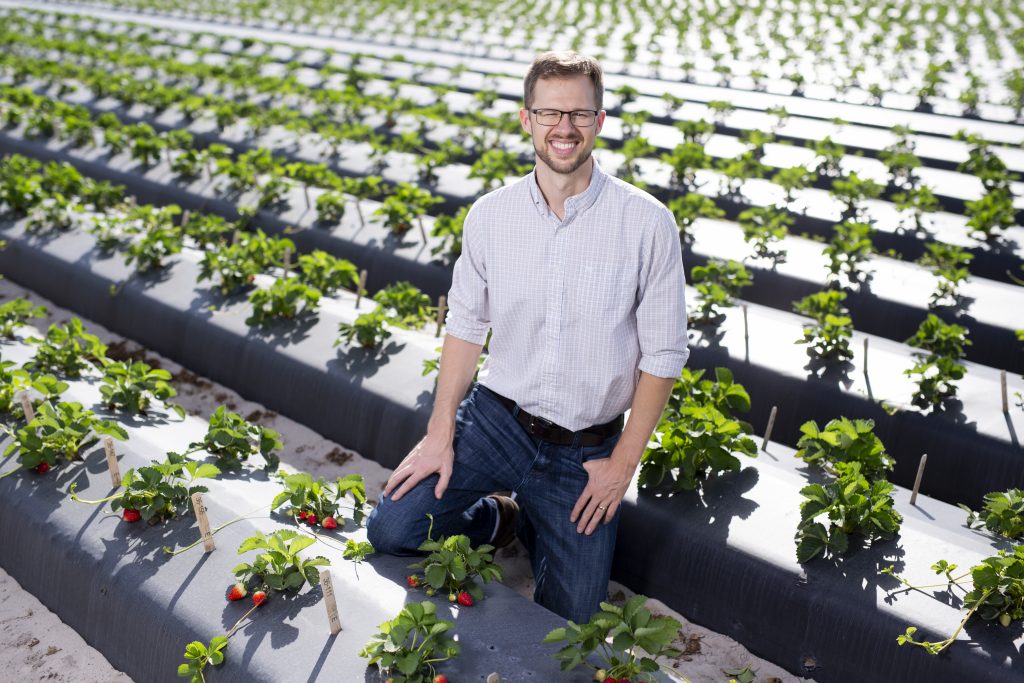
By Clint Thompson
The many challenges facing Florida’s strawberry industry does not dampen the optimism held by University of Florida Institute of Food and Agricultural Services (UF/IFAS) breeder Vance Whitaker. He shares a positive outlook, even amid rising costs, increased trade and a persistent new disease. The quality of the state’s crop is a big reason why.
“I think we’re going to find ways to address diseases. There’s always been other threats and other cost issues. We’ve had a good last couple of years. I think people are buying more strawberries over the last two years, and I think it’s a positive outlook,” Whitaker said. “I think the quality of our strawberries continues to go up, too, and I think that’s just going to be good for the market in the long-term.
“The berry category keeps going up. There’s just better products there over the years. People are just consuming more berries. That consumer demand is what has really driven that basis. That’s what’s really supported the market. I think people are going to continue to eat more berries.”
Disease Threat
Whitaker is also on the front lines in managing the latest threat to the industry. Neopestalotiopsis has been a problem for Florida farmers ever since it was discovered during the 2018-19 season. It causes leaf spots on strawberry plants. It develops quickly and produces spores on the leaves and can cause severe leaf spotting and fruit rot under favorable weather conditions. The disease was discovered in five farms that first season and is now found in fields that had it the prior season.
Whitaker’s work is devoted to developing new resistant varieties. Solutions, though, will take time.
“As a plant breeder I have to be patient. But our growers need solutions right away. You work as fast as you can and hope you can make progress,” Whitaker said. “It’s really hard to say how much progress will be needed, how far we have to get down that genetic road to really make a difference.”









